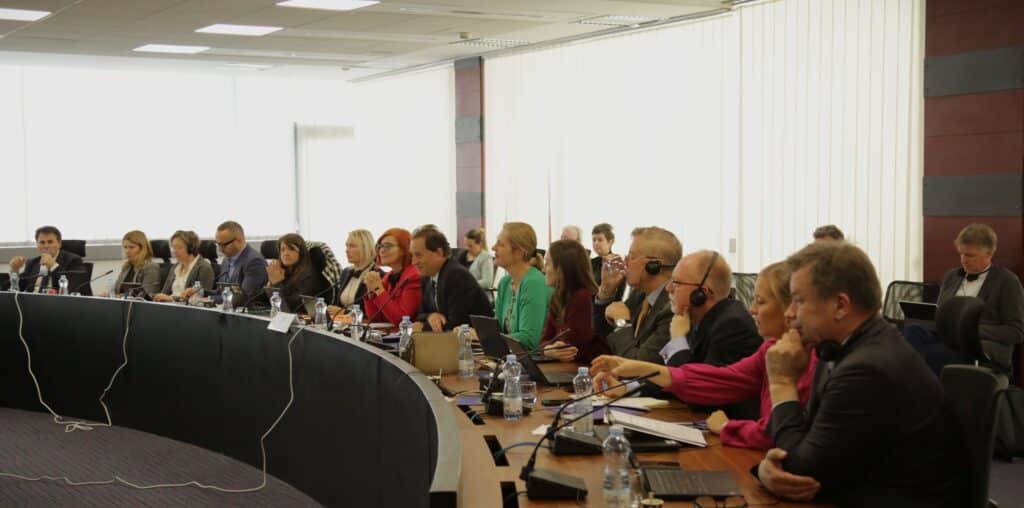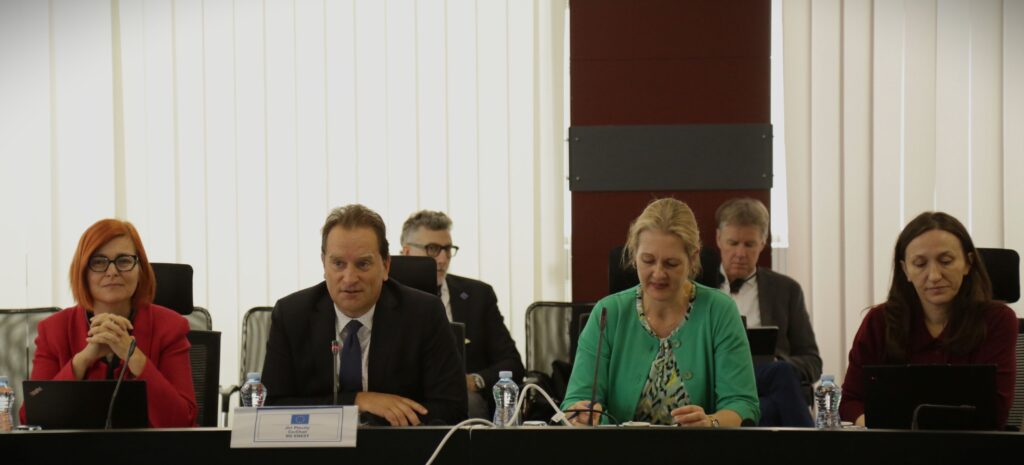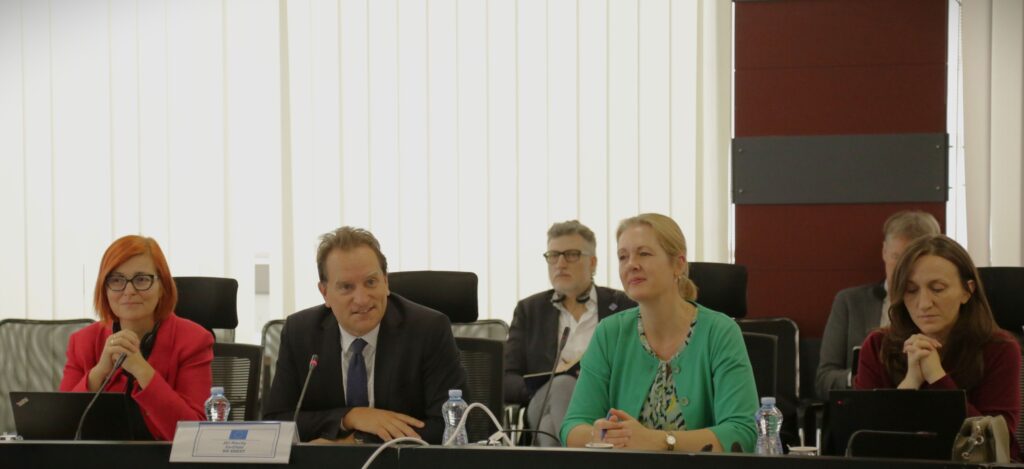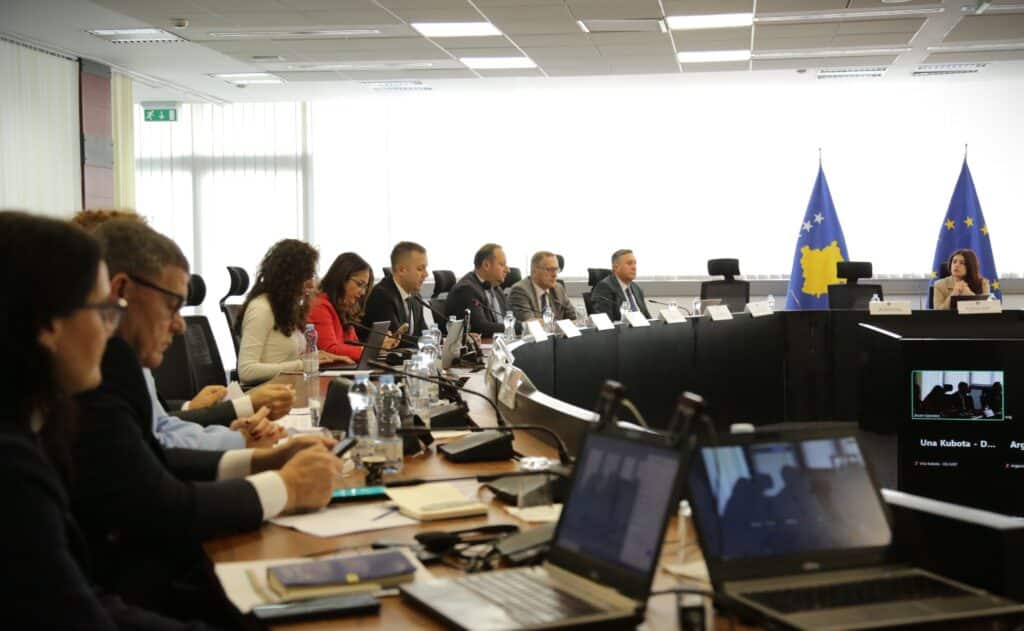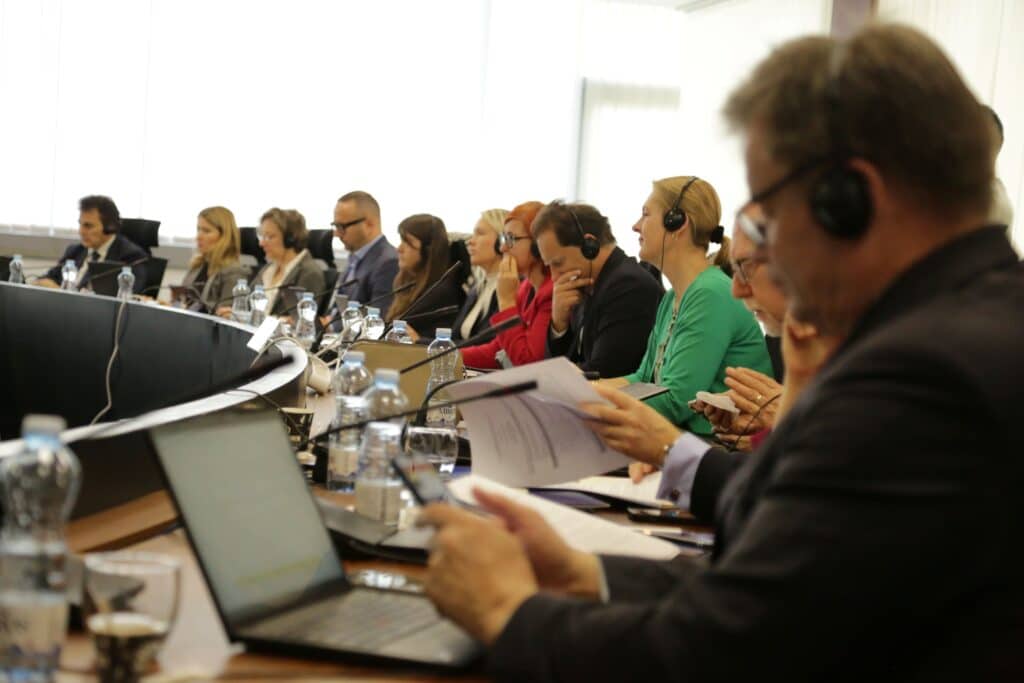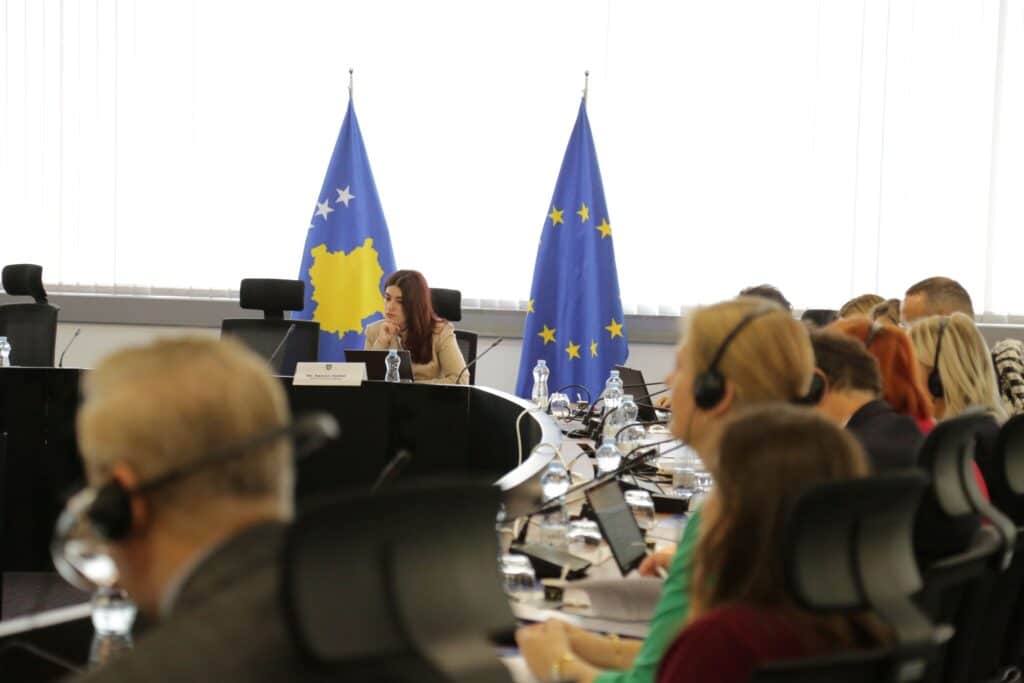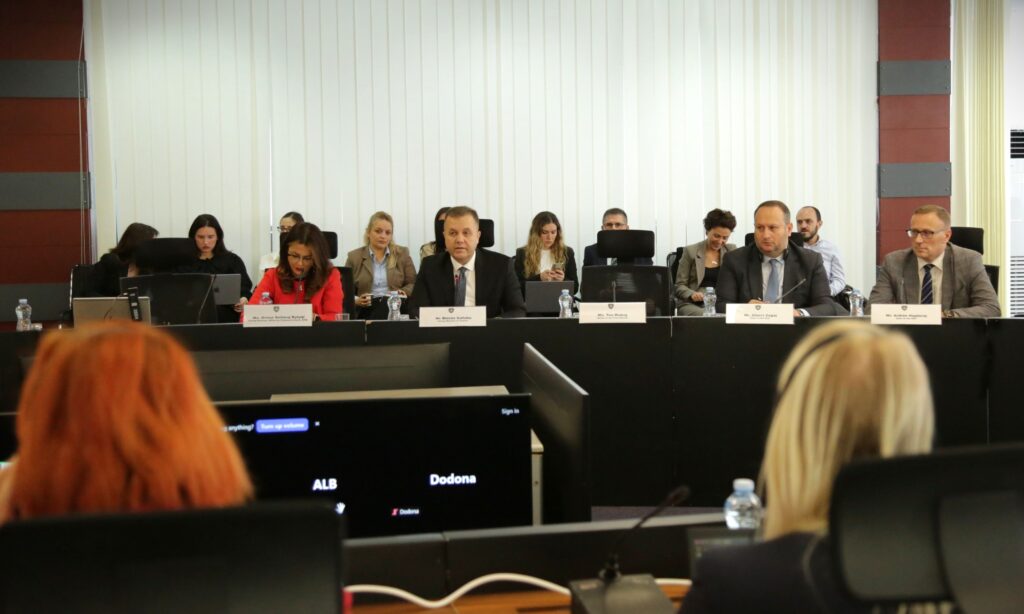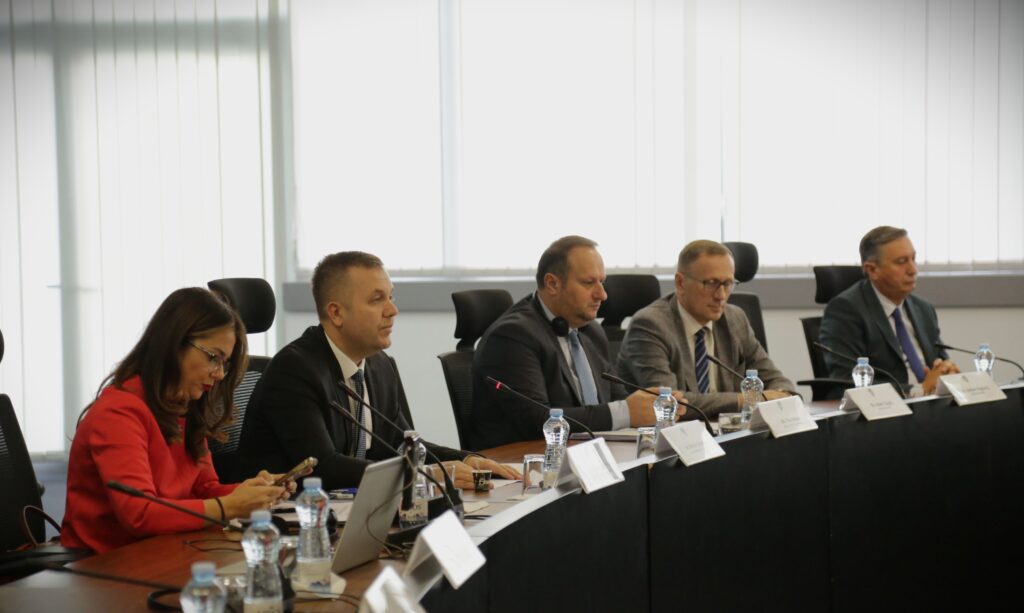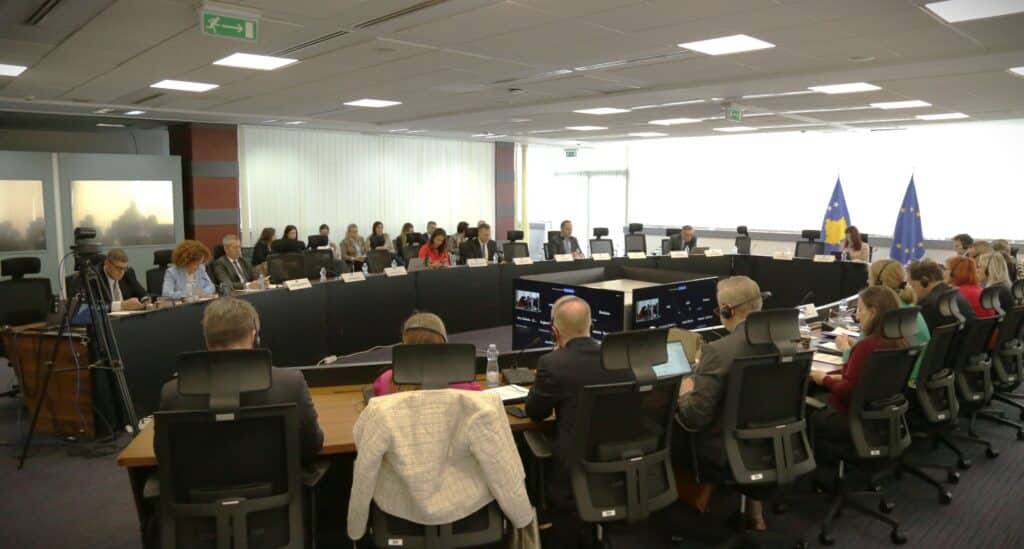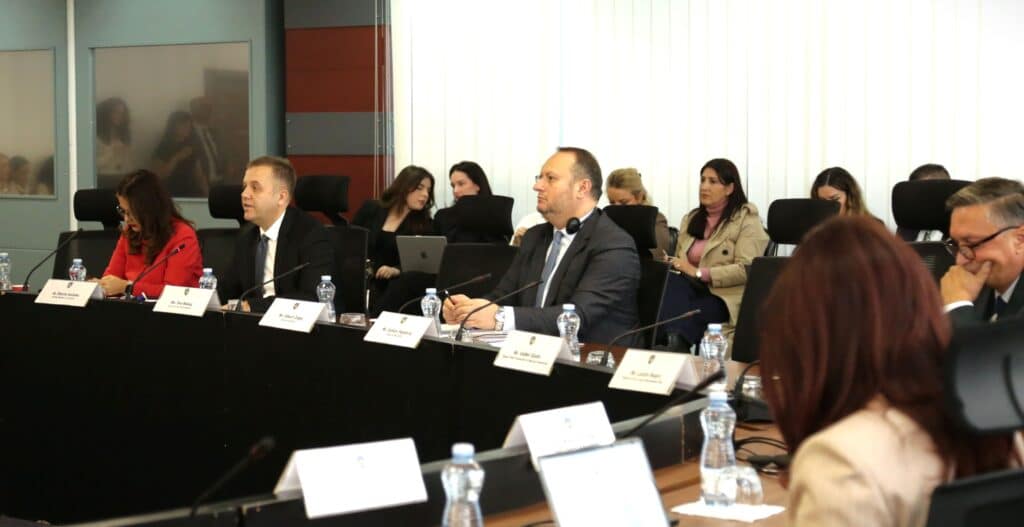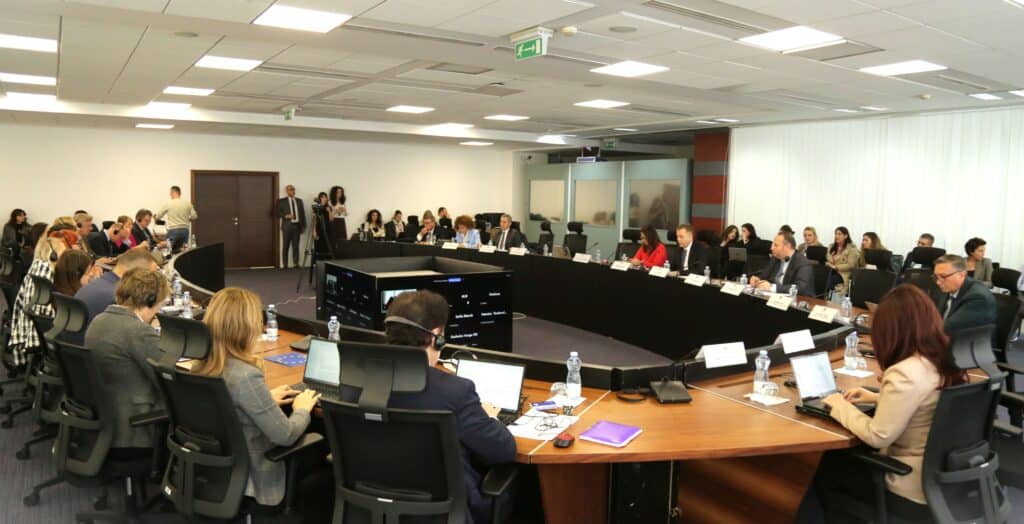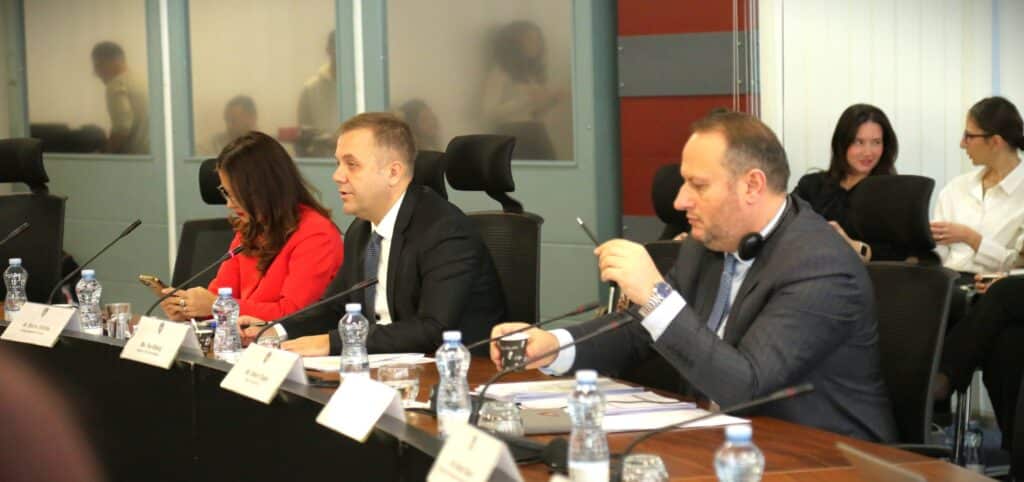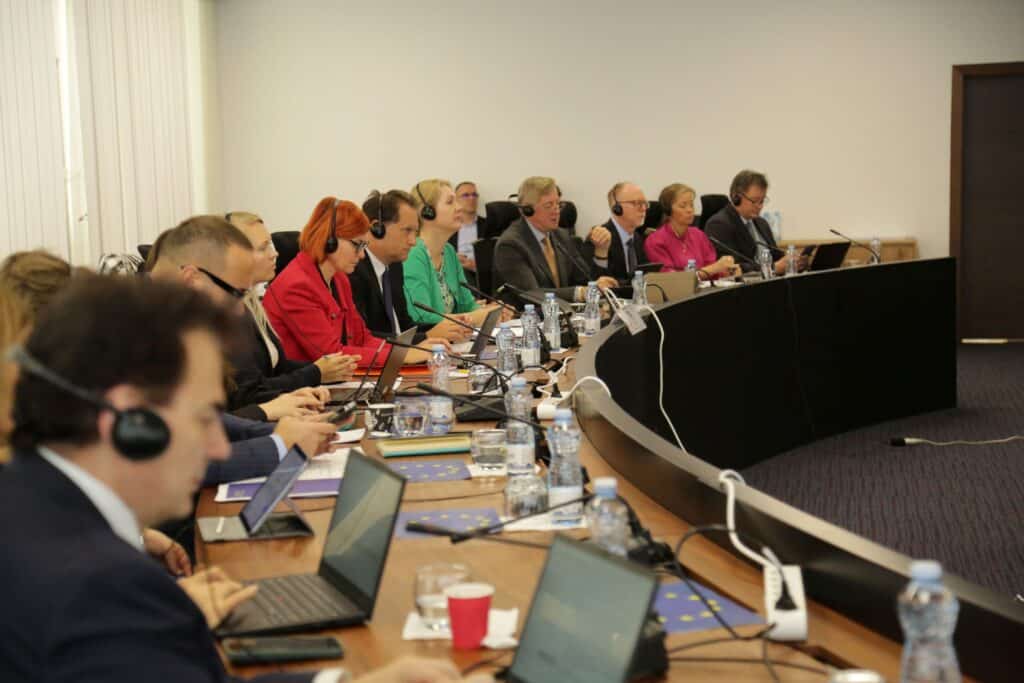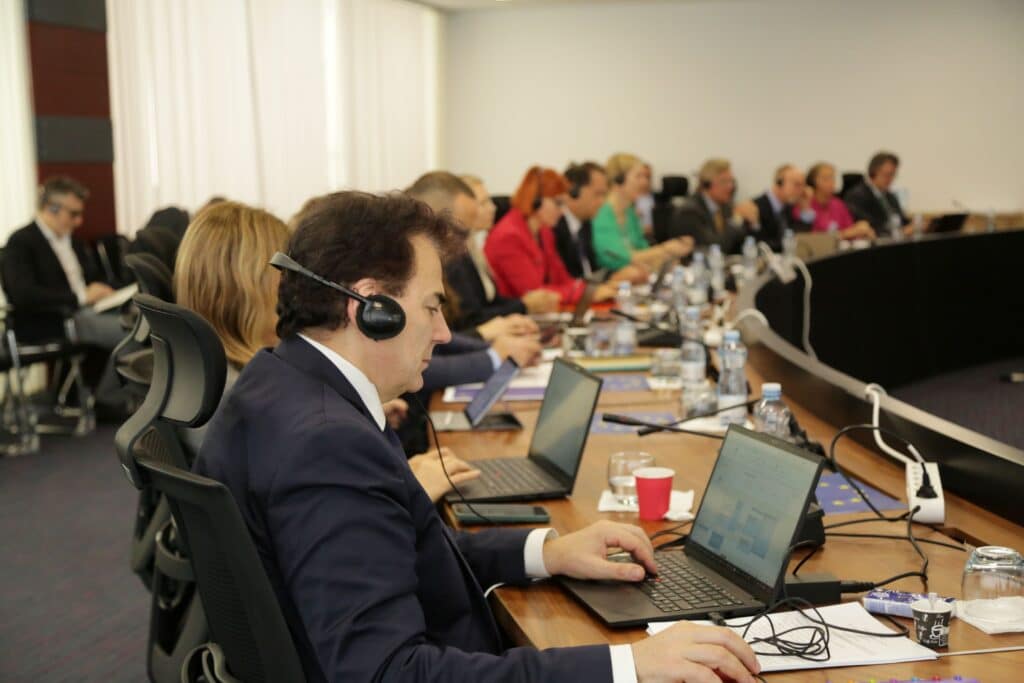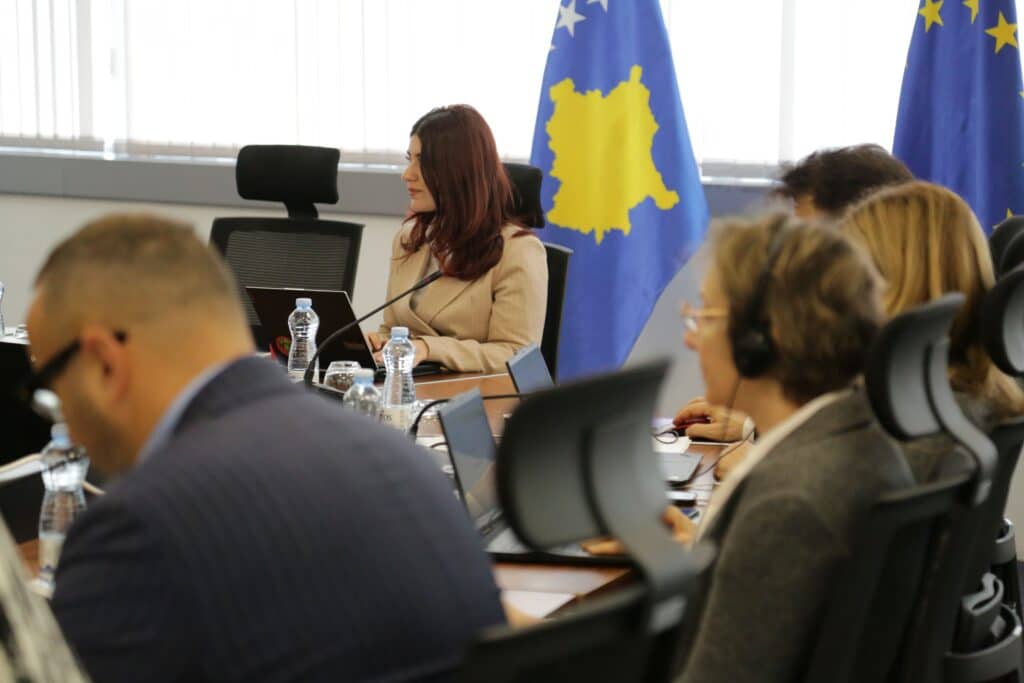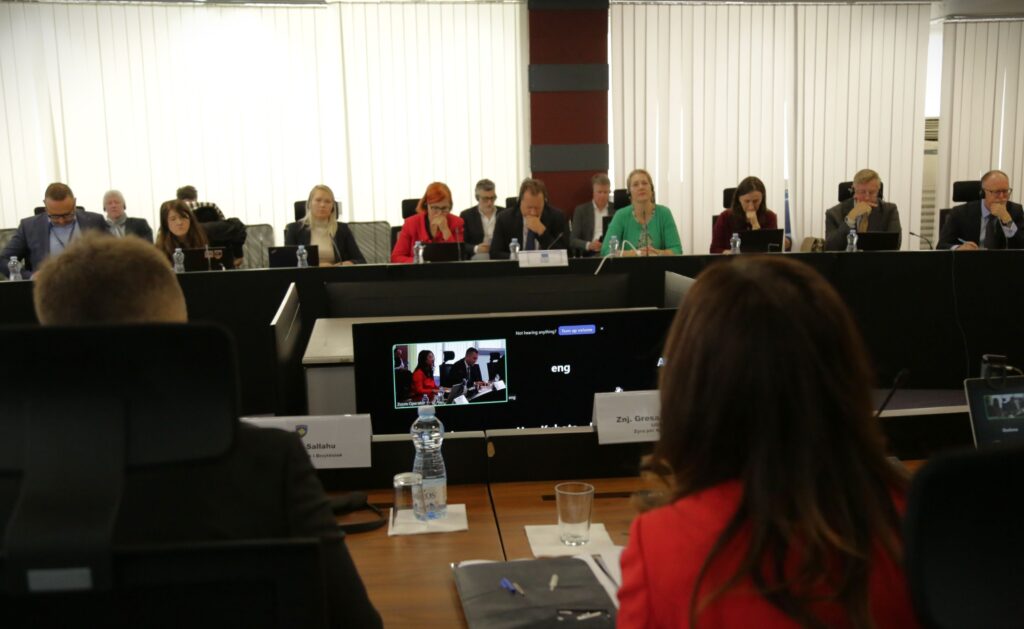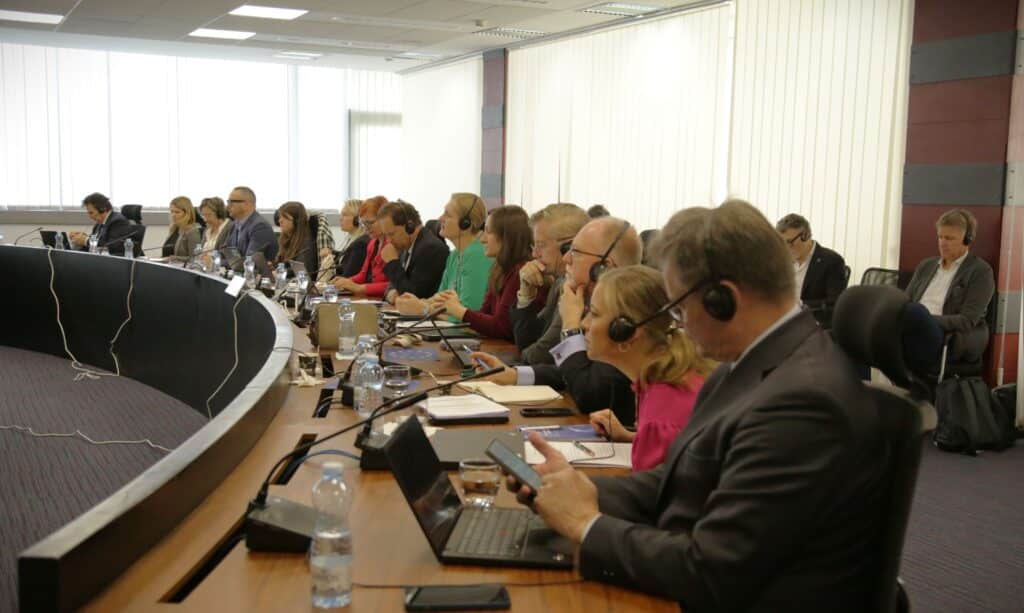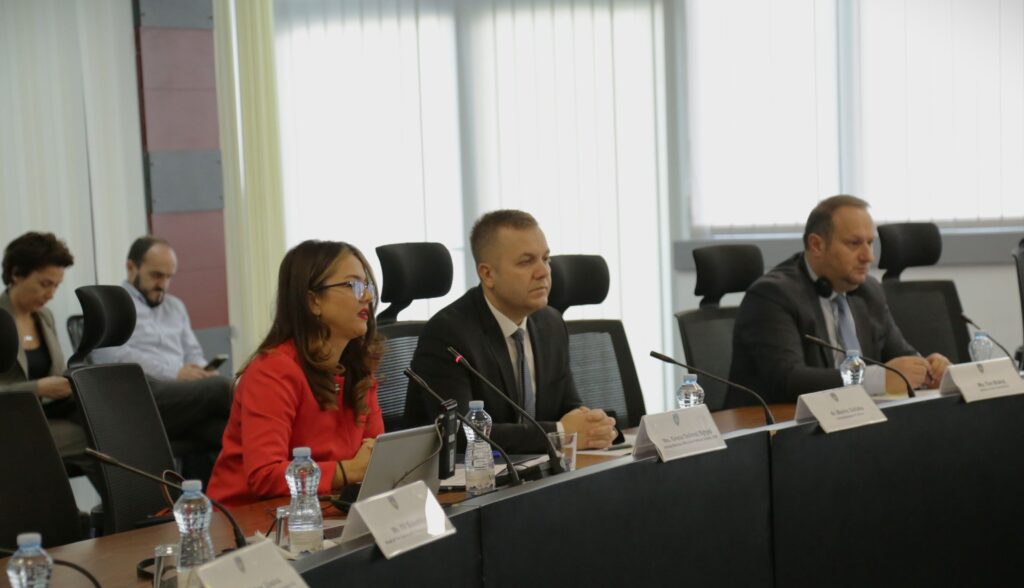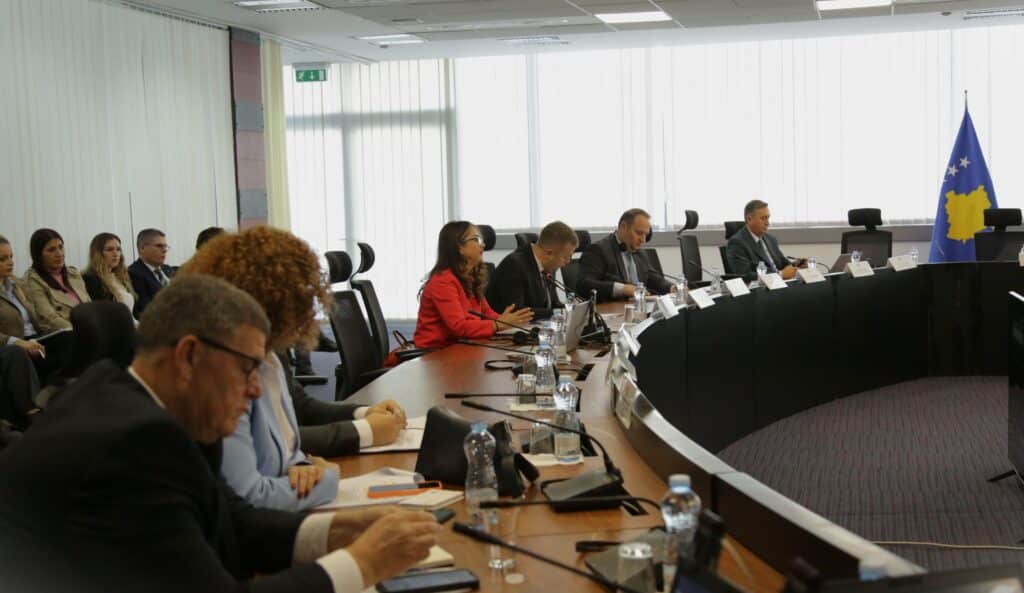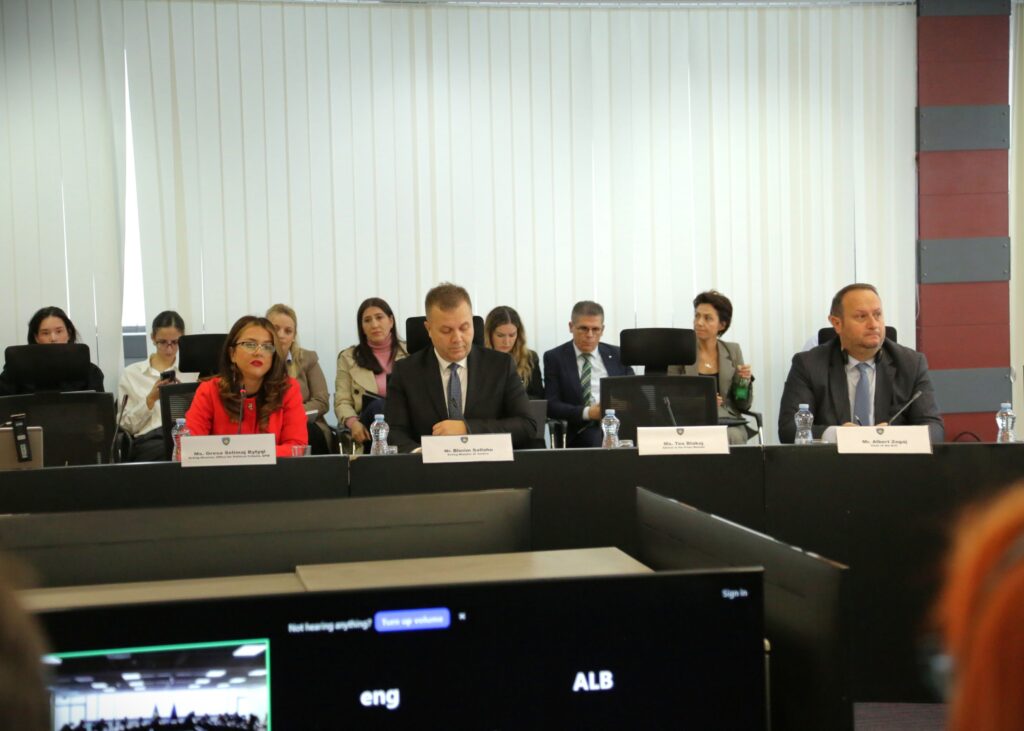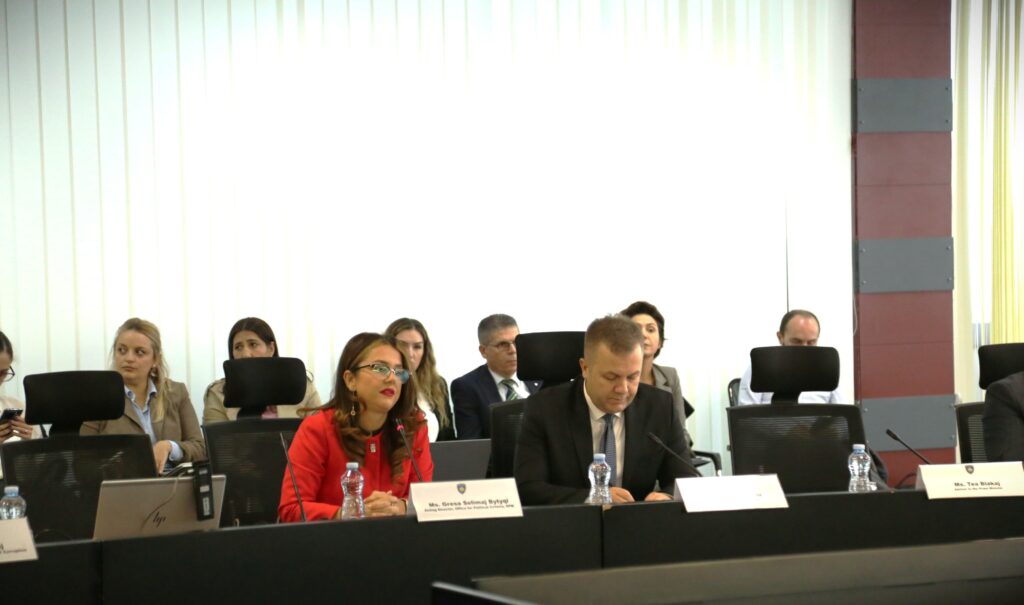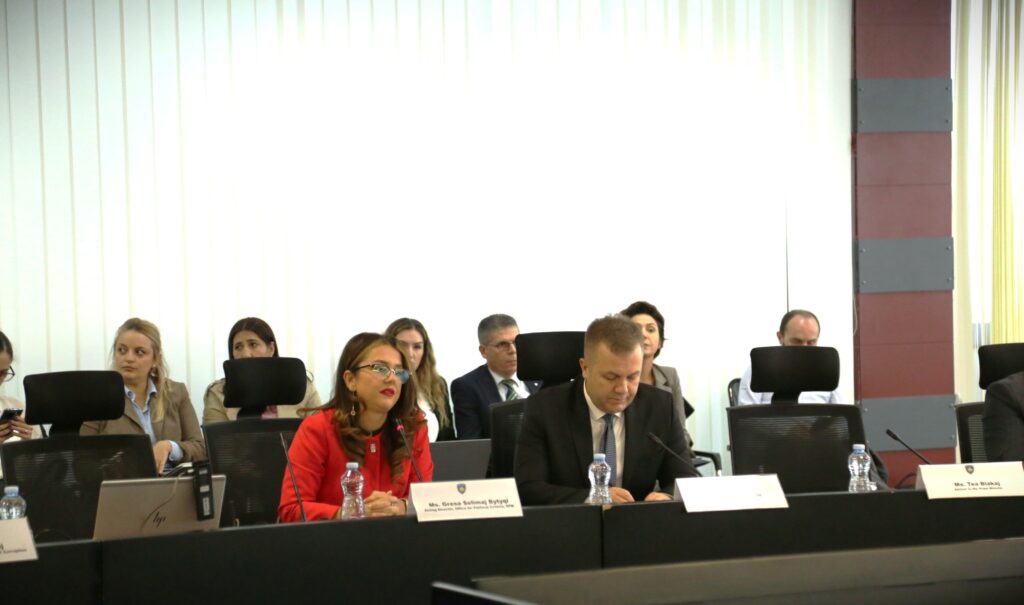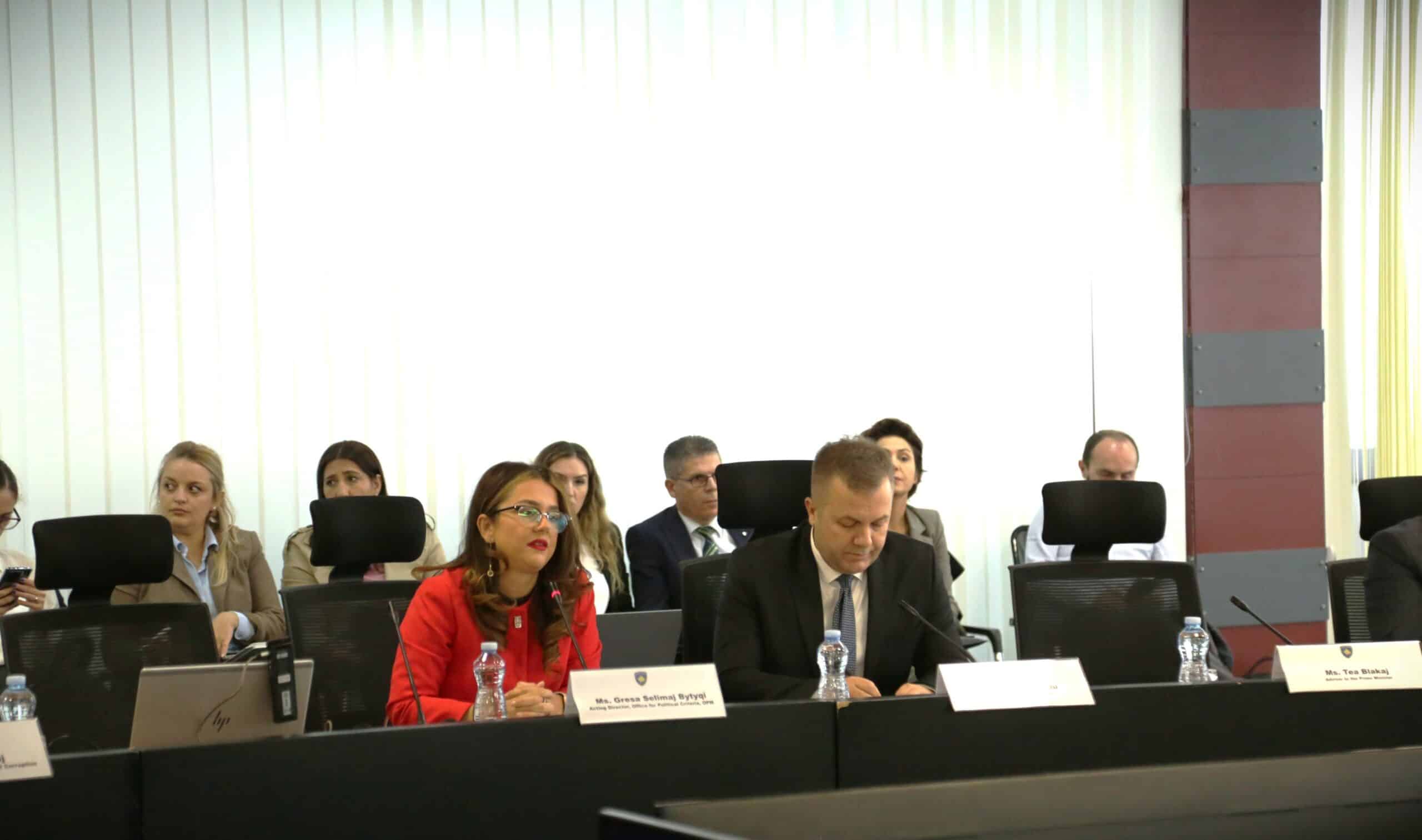Gresa Selimaj Bytyqi, Acting Director of the Office for Political Criteria in the Office of the Prime Minister and Jiri Plecity, Head of Unit for Kosovo and Serbia in the European Commission’s Directorate General on Enlargement and Eastern Neighbourhood co-chaired in Pristina today the 7th EU-Kosovo Sub-Committee meeting on Justice, Freedom and Security. The meeting served to discuss the developments and future cooperation on the rule of law, fundamental rights, and home affairs.
The implementation of justice reforms in line with the Venice Commission’s recommendations and the Joint Statement of Commitment, remains a priority. To that end, participants agree to cooperate to enhance accountability, integrity, professionalism, and independence within the judiciary.
Matters related to administrative justice and handling backlog of court cases were also discussed. The EU emphasised the need for a timely selection of the Chief State Prosecutor and a timely adoption of the Civil Code, as agreed in the Reform Agenda for Kosovo and recommended in subsequent Kosovo reports.
Regarding fight against corruption and organised crime, discussion focused on the importance of the implementation of Kosovo’s strategic framework, inter-institutional cooperation, asset confiscation, and the functioning of the new database on corruption and organised crime cases. Kosovo authorities updated on implementing legislation on asset declarations, whistleblower protection, conflict of interest prevention, and anti-money laundering.
In the field of home affairs, sectoral dialogue tackled activities related to combating terrorism, countering violent extremism and radicalisation, fighting narcotics, addressing migration, visa and asylum issues, and countering trafficking in human beings and migrant smuggling.
As for the fundamental rights, discussions covered the Ombudsperson’s cooperation with the institutions, overall coordination, rights of non-majority communities, gender equality and gender-based violence, freedom of expression, and transitional justice.
Kosovo and the European Commission agreed to continue cooperation on all the areas, including at the technical level, to ensure the full and timely implementation of the ongoing reforms and to design future reforms. To that end, they adopted a set of concrete and time-bounding conclusions that would help Kosovo to prioritise the related reforms and implement the recommendations stemming from the recently publicised 2025 Kosovo report.
Background information
- The Stabilisation and Association Agreement (SAA) is the framework for the EU and the Kosovo administration to regularly discuss technical and policy issues in relation to the EU-related reforms. The SAA bodies include the Stabilisation and Association Council, assisted by the Stabilisation and Association Committee, as well as SAA Sub-Committees, which cover a wide range of the EU acquis. The meetings of the SAA bodies provide direct input into the European Commission’s annual reports.
- Each Sub-Committee meeting monitors and accompanies Kosovo’s delivery on reforms and identifies how the EU can assist in this process.
- There are seven areas covered through sectorial meetings of sub-committees, on Justice, Freedom and Security; Innovation, Information Society, Social Policy, Education and Culture; Trade, Industry, Customs and Taxation; Internal Market, Competition, Consumer and Health Protection; Agriculture, Fisheries, Forestry, Food Safety; Transport, Environment, Energy, Climate Change and Regional Development; Economic and Financial Issues, Statistics.
- Two other areas covered through the meetings of special groups are the reform of the public administration and normalisation of relations between Kosovo and Serbia.
- SAA Committee and Sub-Committee meetings are co-chaired by the European Commission and Kosovo. Each meeting results in jointly agreed follow-up actions to be taken by the Kosovo authorities. The time between the meetings allows for the implementation of the recommendations and agreed follow-up actions.
For more information, contact:
European Union in Kosovo: Nikola GAON SOROKIN, nikola.gaon-sorokin@ext.eeas.europa.eu
European Commission HQ: Emilia HAKANEN, emilia.hakanen@ec.europa.eu
Kosovo authorities: Gresa Selimaj Bytyqi, Gresa.Selimaj@rks-gov.net
